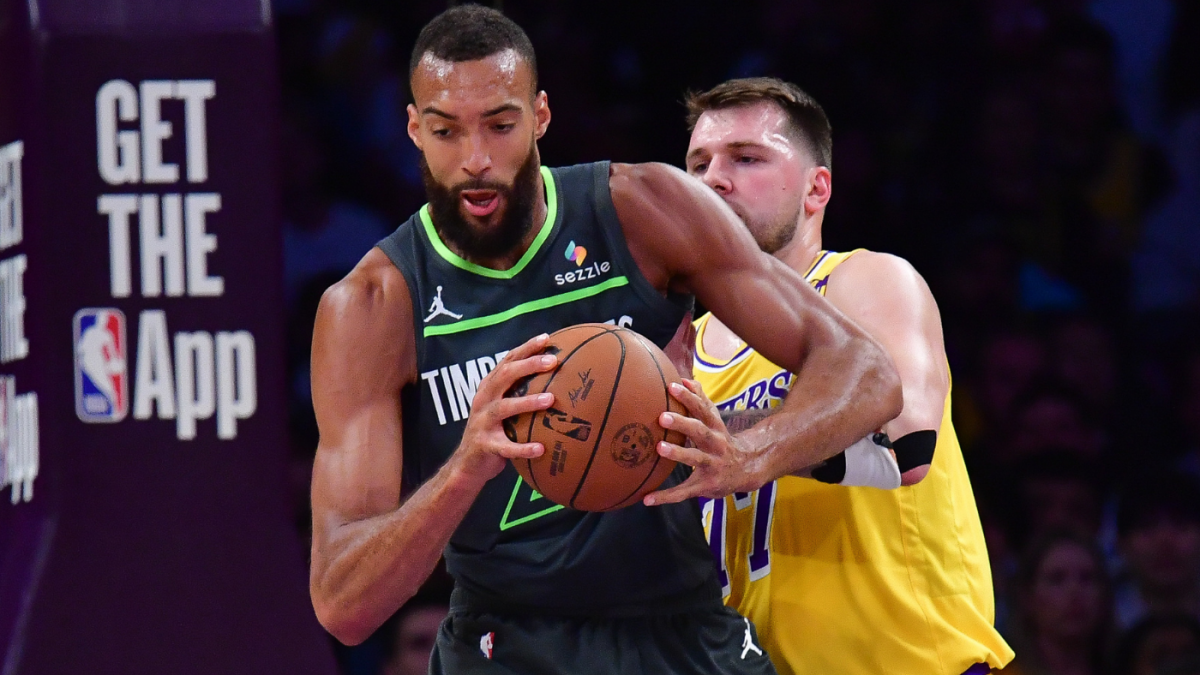“`markdown
The Unlikely Hero: Rudy Gobert’s Defining Moment
The NBA playoffs are a stage where narratives shift, legacies are forged, and underdogs rise. Few expected Rudy Gobert—often scrutinized for his offensive limitations—to dominate a playoff game with the finesse of a superstar. Yet, in Game 5 against the Los Angeles Lakers, Gobert delivered a performance that transcended statistics, redefining his role and propelling the Minnesota Timberwolves to a series-clinching 103-96 victory.
A Perfect Storm of Struggle and Triumph
The Timberwolves’ offense collapsed in spectacular fashion. Their 3-point shooting—a dismal 10%—set an NBA playoff record for futility, including an almost unfathomable 18 consecutive misses. Conventional wisdom suggests such a performance would spell doom. But basketball, like all great dramas, thrives on contradictions.
Gobert’s 27 points and 24 rebounds weren’t just numbers; they were a rebellion. While teammates like Karl-Anthony Towns and Anthony Edwards combined for a woeful 6-for-27 shooting night, Gobert became the anchor. His nine offensive rebounds were lifelines, extending possessions and demoralizing a Lakers team built for speed, not brute force.
Exploiting the Lakers’ Achilles’ Heel
The Lakers’ small-ball strategy, designed to outpace traditional centers, backfired spectacularly. Gobert’s physicality in the paint rendered their lineup adjustments meaningless. He bullied defenders for putbacks, altered shots without fouling (a rarity in today’s whistle-heavy NBA), and anchored a defense that held the Lakers to 42% shooting.
His defensive IQ shone brightest during the Lakers’ 14-0 third-quarter run. While Minnesota’s offense sputtered, Gobert’s rim protection forced contested layups and disrupted rhythm. By the time the Timberwolves stabilized, the Lakers’ momentum had evaporated—a testament to Gobert’s quiet, game-altering presence.
Leadership Beyond the Box Score
Gobert’s impact wasn’t limited to rebounds or points. His screens freed shooters (even if they missed), his communication organized scrambling defenses, and his body language—often criticized in Utah—radiated calm. When Jaylen Nowell’s clutch layup extended Minnesota’s lead late, it was Gobert’s earlier efforts that made the play possible.
This was a redemption arc. Earlier in the series, the Lakers had targeted Gobert in pick-and-rolls, fueling narratives about his playoff viability. In Game 5, he flipped the script, proving that elite defense and relentless hustle can outweigh even the ugliest shooting nights.
The Ripple Effect of a Historic Night
For the Lakers, the loss exposed fatal flaws. Despite 28 points from Luka Doncic and 23 from Rui Hachimura, their lack of size and rebounding (they were outrebounded 52-38) proved insurmountable. For Minnesota, Gobert’s performance validated the blockbuster trade that brought him to the team—a move once mocked for its perceived overpay.
As the Timberwolves advance, questions linger: Can Gobert sustain this dominance against faster, more versatile teams? Will his offense hold up when Towns and Edwards inevitably rediscover their shots? But for one night, those questions didn’t matter. Gobert wasn’t just a player; he was the embodiment of resilience.
Conclusion: Redefining Greatness
Great performances aren’t always about flair. Sometimes, they’re about grinding through adversity with fundamentals—boxing out, contesting shots, and capitalizing on mismatches. Gobert’s 27-and-24 masterpiece was a masterclass in winning ugly, a reminder that basketball rewards those who do the unglamorous work exceptionally well.
The Timberwolves now march forward with a renewed identity: a team that can win even when its stars falter, because their center refuses to let them lose. In a league obsessed with shooting, Gobert’s night was a throwback—and a revelation. Champions aren’t always the ones who shine brightest; sometimes, they’re the ones who stand tallest when everything else falls apart.
“`











